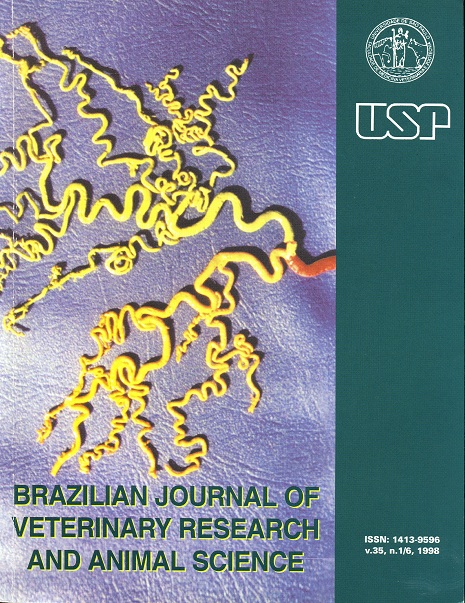Features of the embryonic development of Gallus gallus domesticus in different temperatures and times of incubation
DOI:
https://doi.org/10.1590/S1413-95961998000500010Keywords:
Embryonic development, Fowes, Incubation, MorphogenesisAbstract
With the aim to evaluate the embryonic development of Gallus gallus domesticus, hatching eggs were incubated at temperatures of 34.0ºC, 37.5ºC and 40.0ºC and in time periods of 48h; 72h and 96h. In 81 embryos, besides the head-rump length and total weight determination, 6 characteristics were evaluated through morphological scores. Median values that, at the three incubation times, differ from the standard scores, represent accelerated or retarded development. The length and developmental level of embryonic structures, increase with temperature and time elevations, characterizing the interaction in the studied factors, related with the morphogenetic processes.Downloads
Download data is not yet available.
Downloads
Published
1998-01-01
Issue
Section
ZOOTECHNICS
License
The journal content is authorized under the Creative Commons BY-NC-SA license (summary of the license: https://
How to Cite
1.
Dias PF, Müller YMR. Features of the embryonic development of Gallus gallus domesticus in different temperatures and times of incubation. Braz. J. Vet. Res. Anim. Sci. [Internet]. 1998 Jan. 1 [cited 2024 Apr. 19];35(5):233-5. Available from: https://www.revistas.usp.br/bjvras/article/view/5691





